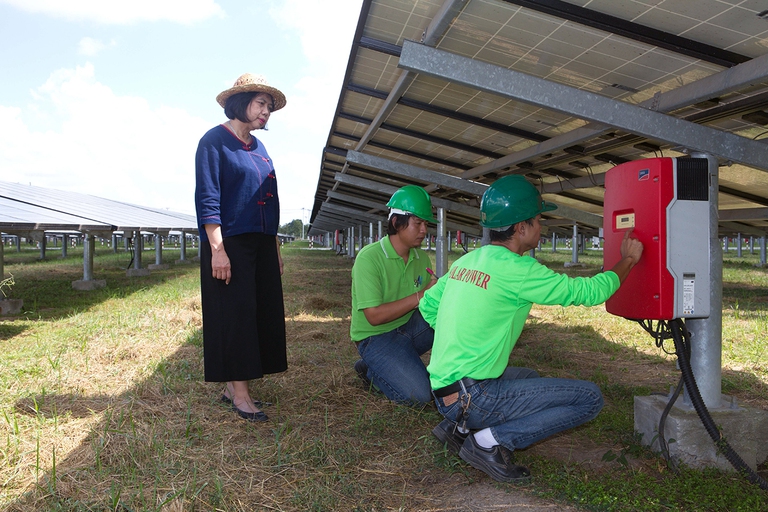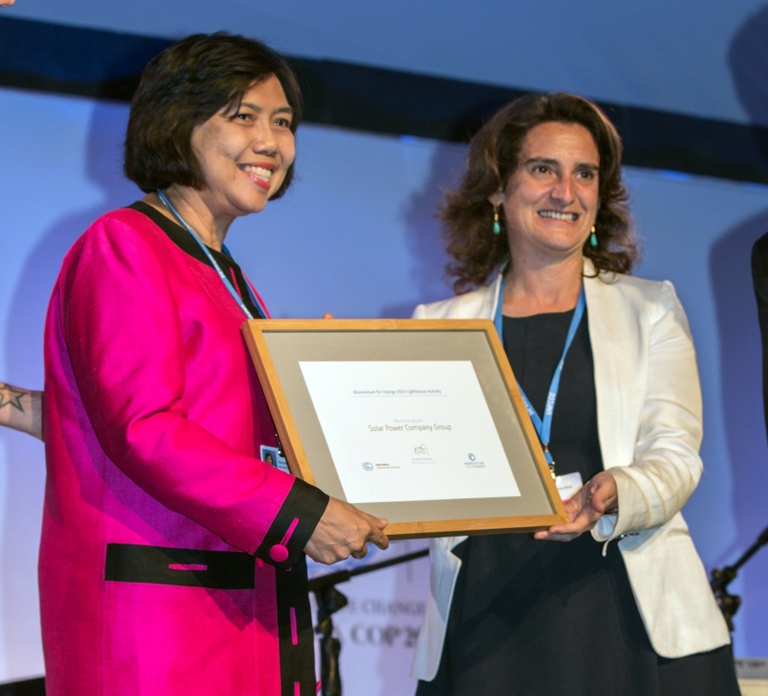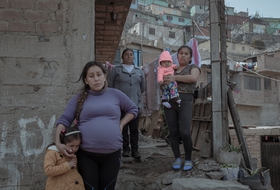
One in three women have suffered physical or sexual violence. With contributions from Europe, Africa, Asia and Latin America, we look at how this shadow pandemic affects every corner of the world.
The photovoltaic revolution in Thailand was sparked by a woman, named the solar queen. And now the country is the Southeast leader in the field.
The national production of solar energy in Thailand in 2008 only accounted for two megawatts. Then, a brilliant entrepreneur, Wandee Khunchornyakong, named Thailand’s solar queen, received authorisations to build 34 PV plants in Thailand’s sunny Northeastern rural areas. Obtaining the fundings wasn’t easy at first because few people thought that the investment was profitable. But Wandee didn’t give up: she was certain that with a growing economy based on fossil fuels and domestic gas resources that are increasingly being used up, solar energy could support the country’s energy independence and sustainable development in rural areas.
That’s the reason why she established the Solar Power Company Group (SPCG) that produced 250 megawatts of clean energy in 2014 alone, saving over 200,000 tonnes of CO2 yearly, the equivalent of the emissions of 40,000 cars or 500,000 oil barrels, according to data of the National Bank, which supported the investment.
Today SPCG is Thailand’s major solar farm: it provides 20% of the country’s total energy consumption and aims to double the production up to 500 megawatts by 2020. Khunchornyakong was named entrepreneur of the year 2013 and in 2014 she was awarded the Lighthouse Activity Award by the United Nations Framework Convention on Climate Change (UNFCCC) that gives a prize to the projects that fight global warming and face major economic, social and environmental challenges, such as the empowerment of young women.
The credit for the success of the project also belongs to the Government of Thailand that understood the need to diversify the country’s energy portfolio and offered subsidies for the construnction of PV plants as well as to incentivise individual and local production that gave isolated communities (those that have no access to the national electric grid) the opportunity to develop. In these regions, indeed, according to the UN the greenhouse gas emissions have increased by 70% between 2000 and 2010.
SPCG now looks at the nearby countries, for example Myanmar, where only 13% of the population has access to electricity and over 43 million people can choose whether to stay in the dark or use expensive and polluting diesel generators. During the 2015 Paris climate talks (COP 21), Prime Minister Prayut Chan-o-cha declared that Thailand is planning to reduce emissions by 20-25% by 2030 by promoting sustainable development and the use of renewable energy. The goal is producing about 6,000 megawatt of installed solar capacity by 2036, that would account for 30% of the renewable energy mix and 9% of total electricity generation. 2014, the year when solar energy met just 4% of the country’s more limited demand, seems so distant. Long live Thailand’s solar queen.
Siamo anche su WhatsApp. Segui il canale ufficiale LifeGate per restare aggiornata, aggiornato sulle ultime notizie e sulle nostre attività.
![]()
Quest'opera è distribuita con Licenza Creative Commons Attribuzione - Non commerciale - Non opere derivate 4.0 Internazionale.
One in three women have suffered physical or sexual violence. With contributions from Europe, Africa, Asia and Latin America, we look at how this shadow pandemic affects every corner of the world.
The Istanbul Convention against gender-based and domestic violence marks its tenth anniversary. We look at what it is, who its signatories are, and what the future might hold.
European Commission President Ursula von der Leyen reminded us of the gravity of violence against women around the world, and of the Istanbul Convention’s utmost importance.
President Erdoğan has pulled Turkey out of the Istanbul Convention, key in the fight against gender violence, claiming that it favours the LGBT community rather than family values.
Violence against women in Peru has increased as a result of Covid-19 lockdowns. 14,912 people were reported missing from January to November 2020, more than half of them minors and 64 per cent women. People have been confined to their homes for months, many forced to endure poor physical, economic and social conditions. A situation that
Joys Estefani Qqueccaño Huamani, 24, disappeared from her rural community in Peru on 9 October. Her family began looking for her independently of the authorities and despite the resistance of relatives of Joys Estefani’s ex-partner Arturo Ccana Condori, 32, charged with committing violence against her on 28 September, eleven days before Joys Estefani disappeared. Photos
Costa Rica celebrated its first same-sex marriage when two women, Alexandra Quiros and Dunia Araya, celebrated their wedding: an “extraordinary moment”.
The pandemic and its restrictions are affecting everyone, without exceptions. However factors like housing, income inequalities, gender, access to technology and working conditions are influencing how people experience the health crisis.
Time magazine’s 100 Women of the Year project sheds light on influential women’s stories, from Amelia Earhart to Greta Thunberg. A selection of some of the greats for International Women’s Day.









